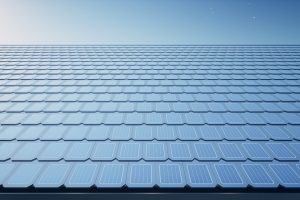
Solar energy is taking the world by storm. As people have become more environmentally conscious, they’re leaning towards sustainable solutions in their everyday lives. Solar power has emerged as a powerful alternative to traditional sources of electricity, such as coal or natural gas. This form of renewable energy harnesses sunlight and converts it into electrical current – that means no emissions and no fuel costs! Today we are going to explore the plethora of uses for solar power both on an individual level and in larger-scale applications that can help combat climate change and preserve our planet for future generations.
Heating Water for Residential Use
One of the most practical uses for solar energy in residential settings is for heating water. Traditional hot water heaters use a significant amount of energy to keep the tank warm, even when it’s not being used. In contrast, solar-powered hot water systems rely on sunlight to heat up water that can then be stored in a tank or circulated directly into faucets and showers. This helps homeowners save money on their monthly utility bills while reducing reliance on fossil fuels.
These types of systems are particularly useful in sunny areas where there is plenty of direct sunlight throughout the year. They often require initial investments upfront but have long-term benefits by drastically cutting down electricity costs over time. Additionally, some governments offer incentives and tax credits to encourage households to convert traditional hot water heaters into solar ones as part of their efforts towards meeting climate goals.
Providing Power for Businesses and Homes
Providing power for businesses and homes is a critical application of solar energy. Many commercial operations, from retail stores to industrial facilities, require continuous access to electrical power. With solar panels installed on their roofs or nearby premises, these businesses can generate electricity during daylight hours and store excess energy in batteries for later use.
Households stand to benefit greatly from the adoption of solar power systems. There are numerous benefits associated with using renewable energy sources like the sun’s rays to supply electricity: it reduces reliance on non-renewable fuels that contribute to greenhouse gas emissions, lowers dependence on grid-connected utilities which can be vulnerable during times of crisis such as natural disasters, protects against rising utility rates by providing long-term cost savings over time among others.
For households located in areas without ready access to grid connections or where frequent blackouts occur due to weather events, independent solar installations provide an excellent option for uninterrupted power supply. Overall, utilizing sustainable energy resources like solar not only contributes towards individual cost-savings but is crucial in reducing environmental impact collectively.
Generating Electricity for Medical Facilities and other Public Services
Generating electricity through solar energy has become a popular choice for medical facilities and other public services. In a time where reliable, uninterrupted power supply is critical, solar energy offers an efficient solution to decrease the dependency on traditional sources of electricity that may be affected by power outages or price hikes. Medical facilities in particular require reliable and consistent electricity to run essential medical equipment such as ventilators, monitors and lighting systems.
The advantages of using solar panels are numerous – not only does it reduce operational costs, but it also plays a vital role in addressing many environmental concerns such as reducing greenhouse gas emissions. Solar energy systems can be customized to suit the requirements of individual hospitals or other public services depending on their location, weather conditions and demand for power.
Economics of Using Solar Energy
The economics of using solar energy are becoming increasingly favorable as the cost of equipment and installation continues to decrease. While initial costs can be high, the long-term savings on electricity bills make it a worthwhile investment. In addition, many governments around the world offer incentives such as tax credits for those who install solar panels to offset some of the expenses.
On a larger scale, using solar power can help reduce carbon emissions from traditional power sources which create negative externalities like air pollution or harm to natural ecosystems. This shift towards renewable energy also fosters innovation in technology and job creation in industries related to solar energy production and maintenance.
Conclusion
Solar energy is becoming an increasingly important player in the fight against climate change and the preservation of our planet. With its capacity to generate sustainable electricity without producing harmful emissions, solar power has become a popular choice for individuals and businesses alike. The myriad of applications available for this renewable energy also make it a versatile solution for a wide range of needs.
From powering homes to charging electric vehicles, from heating swimming pools to fueling large-scale agricultural operations, solar power offers endless possibilities for clean energy solutions. As technology continues to improve and costs decrease, we can expect even greater investment in solar infrastructure worldwide. Ultimately, the future looks bright indeed as more people embrace the benefits of going solar and explore new ways to harness its potential.
from: https://mydividedsky.com/there-are-a-plethora-of-uses-for-solar-energy/


No comments:
Post a Comment